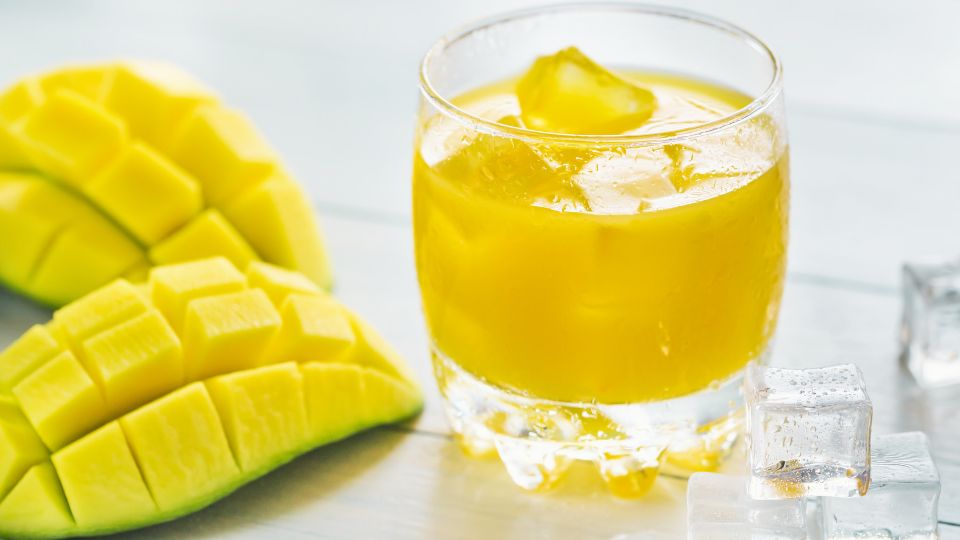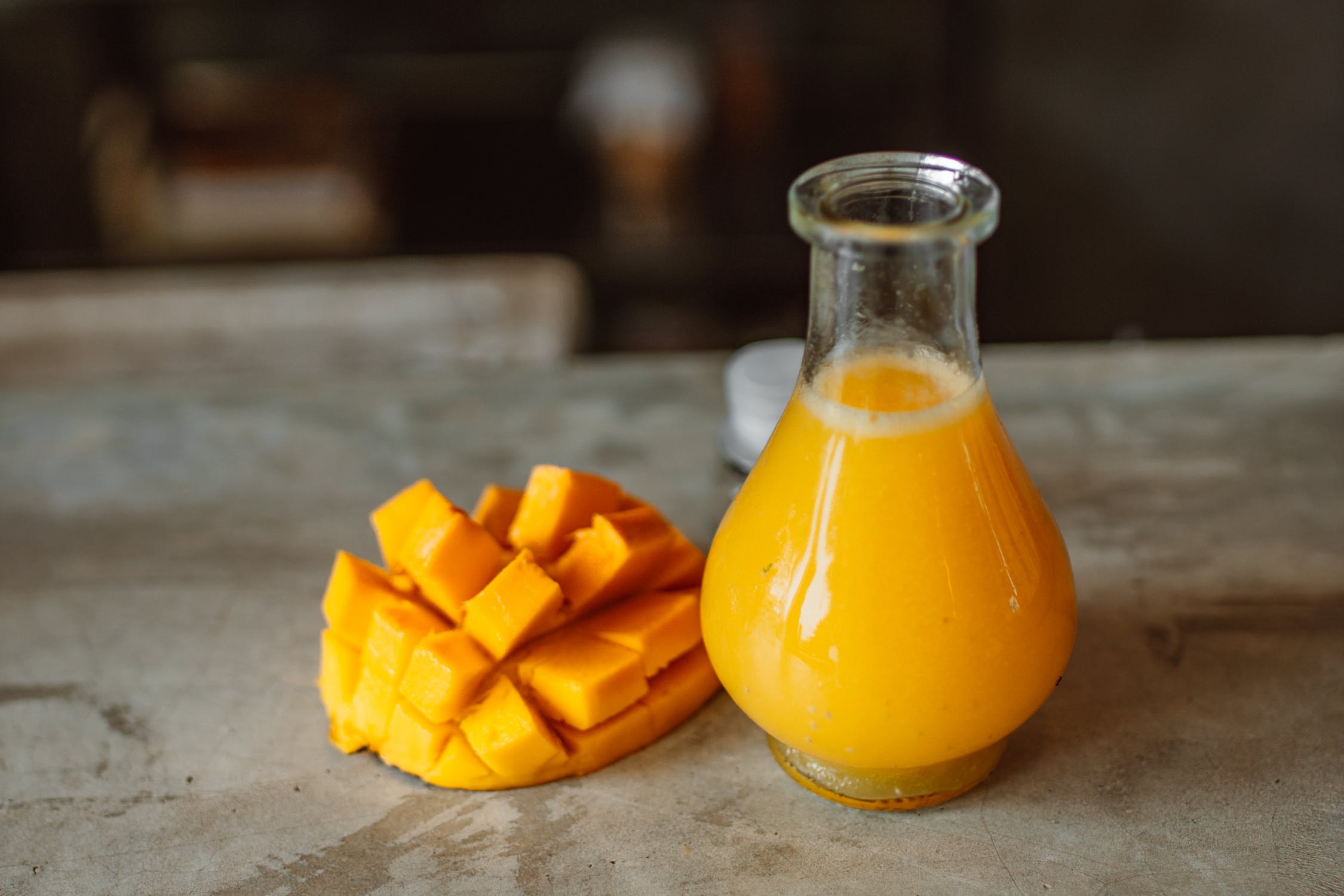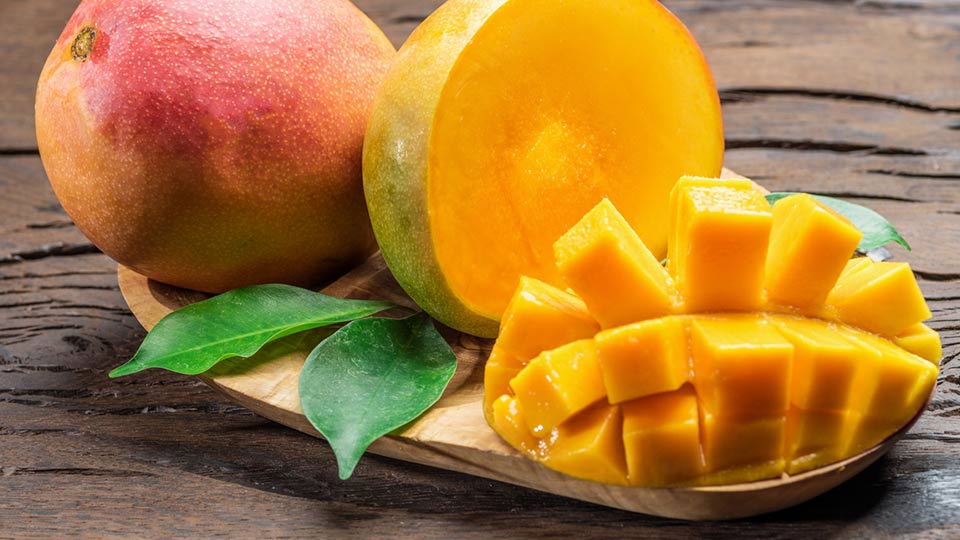Piles, also known as hemorrhoids, are a common condition that can cause discomfort and pain. While there are various treatment options available, some people have turned to natural remedies such as mango juice to alleviate symptoms of piles.
One of the potential benefits of mango juice for piles is its high fiber content, which can help to regulate bowel movements and promote healthy digestion.
In this article, we will explore the potential benefits of mango juice for piles and how it can be incorporated into a healthy diet to support digestive health.
Is Mango Juice Good For Piles?
Piles, also known as hemorrhoids, are a common condition that affects many people. They can be caused by various factors, including constipation, pregnancy, and obesity. While there are many treatment options available, some people have turned to natural remedies such as mango juice to alleviate symptoms of piles.
Mango juice is a delicious and nutritious beverage that is rich in nutrients such as vitamins A and C, potassium, and dietary fiber. One of the potential benefits of mango juice for piles is its high fiber content. Dietary fiber is essential for maintaining regular bowel movements and preventing constipation, which can exacerbate piles symptoms. By adding mango juice to your diet, you can increase your fiber intake and support healthy digestion.
In addition to its high fiber content, mango juice contains enzymes that can aid in digestion. These enzymes can help to break down food and improve nutrient absorption, which can be especially beneficial for those with digestive issues like constipation. By supporting healthy digestion, mango juice may help to alleviate symptoms of piles such as bloating, discomfort, and inflammation.
Moreover, mango juice is also rich in antioxidants that can help to reduce inflammation in the body. Inflammation is a common symptom of piles and can cause discomfort and pain. By reducing inflammation, mango juice can potentially alleviate symptoms and provide relief.
Other nutritional benefits of mango juice
Mango juice is not only a delicious beverage but also a great source of nutrients that can benefit overall health and well-being. In addition to its potential benefits for piles, mango juice is rich in several essential vitamins and minerals that can support immune function, aid in digestion, and promote overall health.
High content of vitamins
One of the most significant nutritional benefits of mango juice is its high content of vitamins A and C. Vitamin A is essential for maintaining healthy vision, skin, and immune function. It also plays a role in cell growth and differentiation. Vitamin C, on the other hand, is a potent antioxidant that can help to protect cells from damage caused by free radicals. It is also crucial for collagen production, which is essential for healthy skin, tendons, and ligaments.
Potassium
In addition to vitamins A and C, mango juice is also a good source of potassium. This mineral is essential for regulating fluid balance in the body and maintaining healthy blood pressure levels. It also plays a critical role in nerve and muscle function, making it an essential nutrient for overall health.
High fiber content
Another important nutritional benefit of mango juice is its high fiber content. Dietary fiber is essential for maintaining healthy digestion and preventing constipation, which can exacerbate symptoms of piles. By adding mango juice to your diet, you can increase your fiber intake and support healthy digestion, which can be essential for preventing and managing piles.
When it may be safe to consume mango juice for piles
Mango juice may be safe to consume for piles when the underlying cause of the piles is constipation or other digestive issues. The high fiber content in mango juice can help to regulate bowel movements and promote healthy digestion, which can be essential for preventing and managing piles.
Consulting with a healthcare professional
While natural remedies such as mango juice may provide potential benefits for piles, it is important to consult with a healthcare professional before use. Piles can be caused by various factors, and treatment plans can vary depending on the underlying cause.
A healthcare professional can help to determine the underlying cause of the piles and provide recommendations for safe and effective treatment. They can also provide guidance on when it may be safe to consume mango juice or other natural remedies for piles.
Following recommended treatment plans
Following recommended treatment plans is crucial for managing piles and ensuring proper healing. This may include using medications, home remedies, or other treatments as recommended by a healthcare professional. Follow these treatment plans closely and to avoid any activities or substances that may exacerbate symptoms.
Safe alternatives to mango juice for piles
When it comes to managing piles, natural remedies such as mango juice may provide potential benefits. However, for those who prefer not to consume mango juice or are looking for safe alternatives, there are several non-acidic and hydrating options to consider.
Water
Water is an essential beverage for maintaining proper hydration and supporting digestive health. Drinking plenty of water throughout the day can help to regulate bowel movements, prevent constipation, and alleviate symptoms of piles. It is recommended to drink at least eight glasses of water per day to maintain proper hydration.
Herbal teas
Herbal teas can be a great alternative to mango juice for those looking to soothe and support digestive health. Chamomile, ginger, and peppermint teas are all known for their anti-inflammatory and digestive benefits. They can help to alleviate symptoms of piles such as inflammation, bloating, and discomfort.
Coconut water
Coconut water is a hydrating and refreshing beverage that is rich in electrolytes and nutrients. It can help to regulate bowel movements, prevent dehydration, and support overall digestive health. It is important to choose pure, unsweetened coconut water for the best health benefits.
Non-acidic fruit juices
For those who prefer fruit juices, non-acidic options such as apple juice or pear juice can be a good alternative to mango juice. These juices are less likely to cause irritation or discomfort and can help to support digestive health.
FAQs
Are mangoes good in piles?
Mangoes may potentially be good for piles as they are a good source of dietary fiber and can aid in digestion. However, it is important to consult with a healthcare professional before using any natural remedies for piles and to follow recommended treatment plans.
Which fruit juice is good for piles?
Non-acidic fruit juices such as apple juice or pear juice may be good for piles. These juices are less likely to cause irritation or discomfort and can help to support digestive health.
Which fruits are not good for piles?
Citrus fruits like oranges, pineapples, and mangoes may not be good for piles as they are acidic and may cause irritation or discomfort in the digestive tract. It is important to consult with a healthcare professional to determine which fruits are suitable for your individual needs.
What makes piles worse?
Various factors can make piles worse, including constipation, diarrhea, and straining during bowel movements. It is important to maintain healthy bowel habits, stay hydrated, and follow recommended treatment plans to prevent worsening of symptoms. Avoiding spicy foods, caffeine, and alcohol may also be helpful.
Conclusion
In conclusion, mango juice may potentially provide benefits for those suffering from piles due to its high fiber content, which can help to regulate bowel movements and promote healthy digestion. However, it is important to consult with a healthcare professional before using any natural remedies for piles and to follow recommended treatment plans.
In addition to incorporating mango juice into a healthy diet, it is essential to maintain healthy bowel habits, stay hydrated, and follow a comprehensive treatment plan for proper healing. By taking a holistic approach to managing piles, individuals can effectively alleviate symptoms and improve their overall digestive health.







